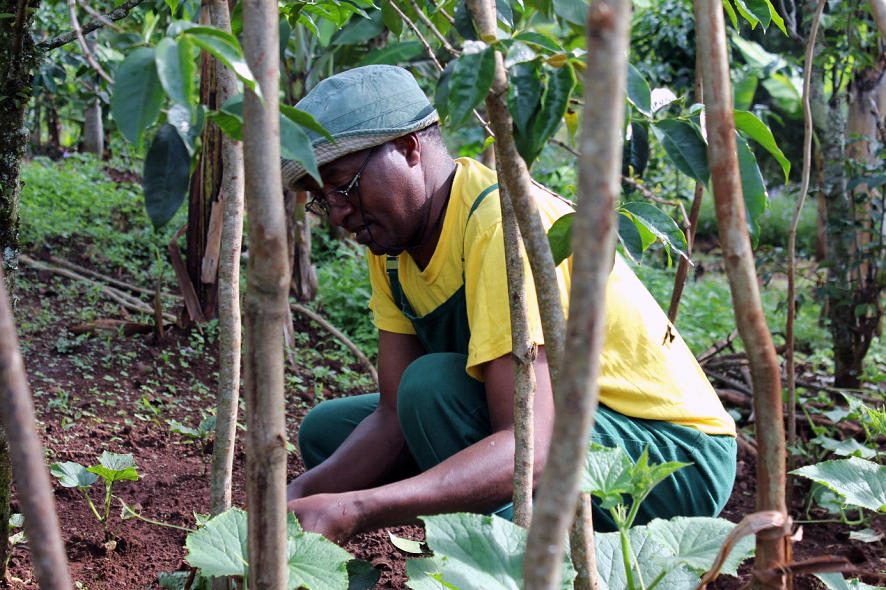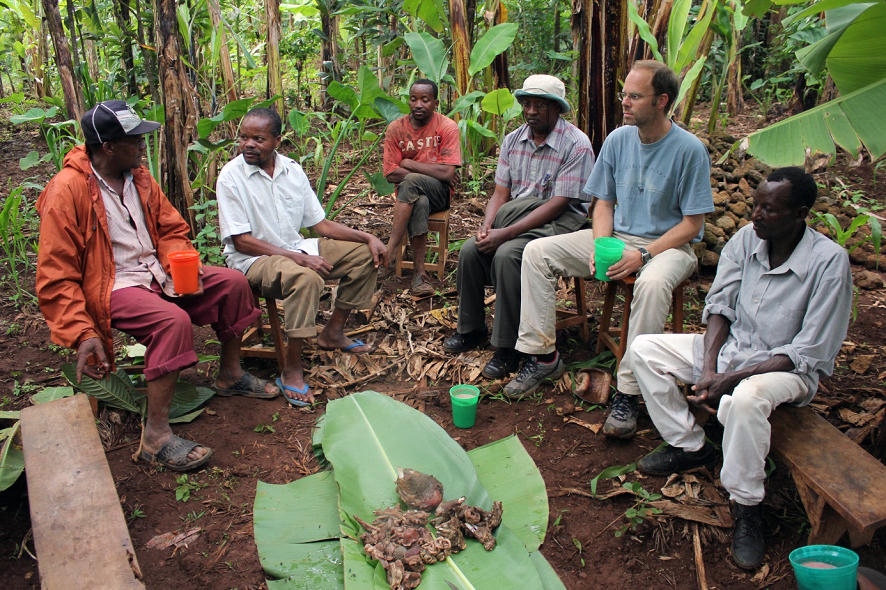NAFA 2016: Film festival: 21 – 24 September

Hovedinnhold
Film festival 21- 24. September 2016
Our perceptions of the world are in large shaped by images from the news where the focus is on exceptional events. But how do people live their ordinary lives? What do they do in everyday life and how do they celebrate their special occasions? How is life next to the war, the riots, the refugees and the dramatic images we see on the news?
Anthropologists have brought movie cameras all over the world to document and communicate how people live in all corners of this planet. The genre anthropological film is first of all developed on the basis of anthropological method which includes longer field studies and longer shooting time in the field and the result are often films that challenges our perceptions.
NAFA Film Festival is a travelling international film festival which shows recent work of anthropological film, and gives an insight to people, culture and society from all over the world. NAFA Film Festival 2016 will be held in Bergen - for the first time in 10 years.
NAFA 2016 shows 26 films, and most of the filmmakers will be present during the screenings.
Festival pass for four days 300 NOK, NAFA members and UiB students 200 NOK. Day pass 100 NOK.
Festival warm-up event: premiere
Tuesday 20.September 2016 – at 1915
Tivoli – Det Akademiske Kvarter
Atali's Garden - Tanzania (43 min.) 2016
a film by
Frode Storaas (University Museum of Bergen, University of Bergen)
and Knut Christian Myhre (University of Oslo)
Atali has recently moved back to his homestead in Rombo District on the eastern slopes of Mount Kilimanjaro in northern Tanzania. For nearly twenty years, he has pursued university studies and engaged in various business ventures, but these have brought him few material rewards. Atali is determined to turn his life around and is convinced he needs to settle some longstanding matters pertaining to his long-deceased father and father’s father. His path to a better future goes through the past and requires an intervention in the present. A visit from the anthropologist Knut Christian Myhre, who has long lived in Atali’s house while conducting research in the area, provides Atali with the impetus to proceed with his plans. He wants a new name and connection to a different Homestead, and for this a ceremony is required. But will his elderly mother agree to this?
This is a film about anthropological topics, such as adaptation, kinship, religion and ritual life. It is also a film about anthropological fieldwork - tuning in, hanging out and hanging on - participating and observing. Atali og Knut Christian will be present at the Premiere.
Free entrance
Programme
All events takes place at Tivoli, Kvarteret, unless otherwise noted.
Wednesday 21 September
9:30 -10:00 Registration
10.15-12.00 Panel
12.15 Exhibit opening: Underneath the Shieldshaped Mountain. At the Student Centre, Parkveien 1.
13.15-15.15 Film screenings 1
- My name is salt (Farida Pacha, Switzerland/India, 2016, 92')
- Passage – Camera as Cultural Critique/Creative Archives #1 (Arine Kirstein Høgel and Christian Vium, Denmark, 2014, 10')
15.45-18.00 Film screenings 2
- Behind the door (Martin Svinkløv and Rune Bundgaard, Denmark, 2015, 85')
- Girls (Kate Blackmore, Australia, 2014, 21')
Thursday 22 September
10.00-12.30 Film screenings 3
- The People of the Volcano (Soraya Hosni and Filip Talevu, Vanuatu, 2013, 48')
- Land of Udehe (Ivan Golovnev, Russia, 2015, 26')
- (short break)
- Khatte: the choice of freedom (Miha Mohoric, Slovenia, 2015, 55')
13.15-15.15 Film screenings 4
- Roza's song (Lowri Rees, Norway, 2016, 45')
- Nazareth Cinema Lady (Nurit Jacobs Yinon, Israel, 2015, 52')
15.45-18.00 Film screenings 5
- Damiana Kryygi (Alejandro Fernandez Moujan, Argentina, 2015, 94')
- Between memories (Martha-Cecilia Dietrich, UK, 2015, 34')
Friday 23 September
10.00-12.30 Film screenings 6
- Sea Boundary (Rossella Schillaci, Italy, 2013, 55')
- Persisting Dreams (Côme Ledésert, Germany, 2015, 25')
- Adamou Moves (Mary Zweifel, Germany, 2015, 21')
13.15-15.15 Film screenings 7
- Hotline (Silvina Landsmann, Israel and France, 2016, 99’)
15.45-18.00 Film screenings 8
- Food stories (Eline A. Lågeide, Norway, 2016, 30’)
- Eoha (Vladimir Perovic, Montenegro, 2015, 22’)
- Changa Revisited (Peter Biella and Leonard Kamerling, U.S.A., 2016, 60’)
Saturday 24 September
10.00-12.30 Film screenings 9
- Time suspended (Natalie Bruschtein, Mexico, 2015, 64’)
- Arabic Movie (Eyal Sagi Bozawie and Sara Tsifroni, Israel, 2015, 62’)
13.15-15.15 Film screenings 10
- Our metropolis (Gautam Sonti and Usha Rao, India, 2014, 91')
- Google a religion (Joanna Sleigh, Germany, 2016, 5')
15.45-18.00 Film screenings 11
- Blind living (Maja Byriel and Aurora Brekke, Denmark, 2015, 19’)
- A room in the house (Catarina Alves Costa, Portugal, 2016, 55’)
- Looking for Mr. Right now (Anne Chahine, Germany, 2015, 15’)
- Women in zink (Iris Zaki, UK, 2015, 36’)
Workshop: 19. - 20. september 2016
In the course of this workshop we will go through some basic practical principles for recording better footage with a smartphone or camera, and some tips and tricks for smooth editing on a Mac or a PC.
The workshop is targeted primarily at students and researchers whose work encompasses observation in the field, but others interested in the topic are also welcome.
Many university disciplines use field observation as a major data collection method. Still, the use of film and video has not yet been much used for communicating research. Anthropology has been an exception to this - visual anthropology has been a prominent sub-discipline for decades, ever since Jean Rouch developed his own school of documentary film in the 1960's. Nowadays the equipment for recording and editing is affordable for most, and Internet is readily available as a distribution channel.
Inside academia more and more publishing is done online. This has opened up the possibility for multi-modal texts where video, sound and pictures can be a part of the text. Short video clips can make the text much more interesting for the reader. In academic texts the people who are the original subject of the text are often lost in the abstractions. A short film clip will not only document many aspects of the subjects as social and cultural actors, but also give them a personal voice.
Participants of the workshop should prepare beforehand a film clip about 2-5 minutes long.
The instructors will be internationally known filmmakers experienced in anthropological film work.
The workshop is free of charge, but number of participants will be limited.
Sign up here:
Panel discussion: 21 September 2016
Time: Wednesday 21 September 10:15 am – 12:00 Venue: Tivoli, Kvarteret
Topic "Ethical challenges of using photos and videos on the Internet."
The use of photos and videos is a matter that one must always consider very carefully. Anonymity for participants in a research project is a requirement in most cases.
The ethical responsibilities of the person(s) behind the camera is a topic that must be discussed again and again. Instagram, Facebook, YouTube and other Internet platforms have become a part of everyday life for many, and it can be hard to avoid these forms of communication. Norway's Minister of Culture has expressed that laws must follow technological innovation. However, defining definite rules to regulate the use of photos and videos on the Internet, in academic texts or elsewhere, is not straightforward.
Free entry.

